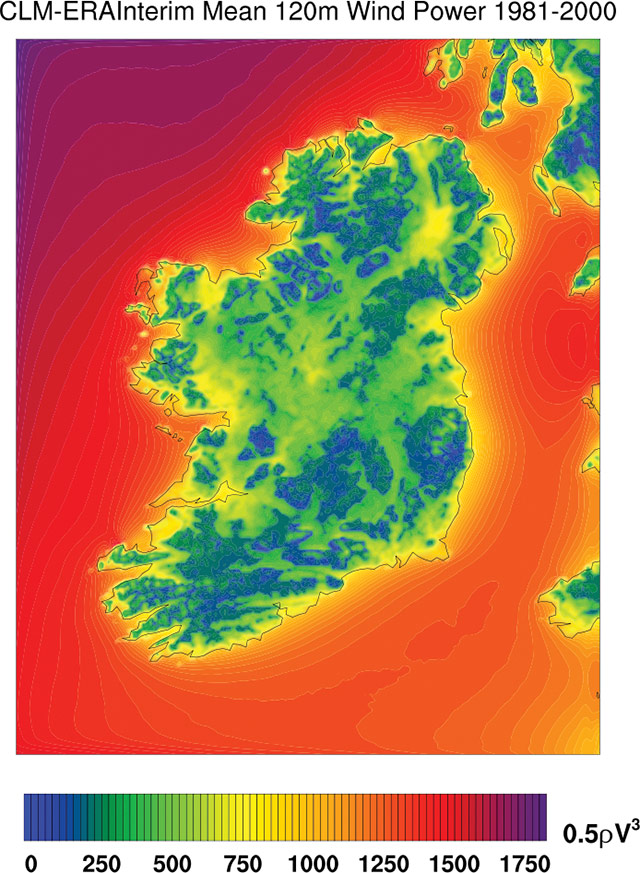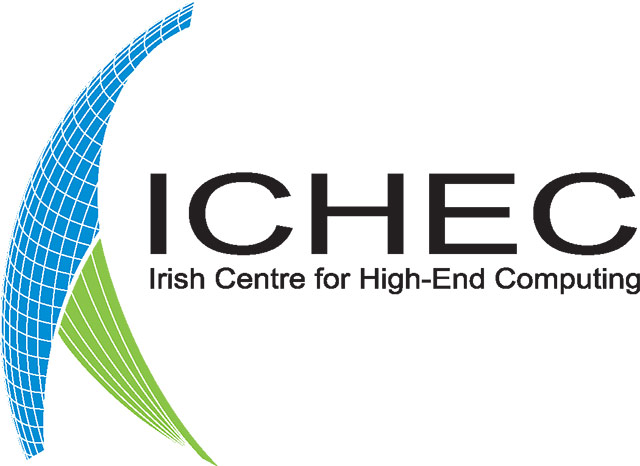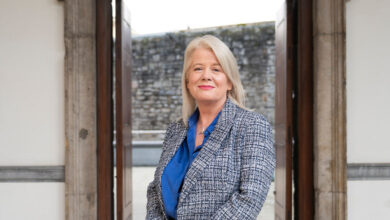ICHEC: Solutions for all sectors


As High Performance Computing increasingly becomes an integral aspect of science and technology, the Irish Centre for High-End Computing is equipped with a decade of experience to act as service providers to a growing field of users.
For global energy production, weather forecasting and even medical science, High Performance Computing (HPC) is an integral part of society and its future. HPC allows for faster analysis of massive sets of complex data. HPC can solve problems that conventional computing could not hope to grasp. It is increasingly becoming a fundamental part of academia, industry and public services, with benefits for both society and the individual.
With the emergence of enabling technologies such as Cloud Computing, HPC is rapidly becoming ever more ubiquitous and relied upon. We are now entering an era of democratisation of HPC, and the Irish Centre for High End Computing (ICHEC) is ready for, and excited to, meet the opportunities and challenges this will bring.
ICHEC prizes its people, drawing expertise from a wide range of fields, including computational science, environmental sciences and energy research. Moreover, by understanding the specific needs of academic and industrial partners, our approach can be easily tailored to the needs of those who benefit from our services.
ICHEC has already established itself as a vital partner to both industry and academia in several important ventures. We have collaborated in areas such as petroleum surveying, wind forecasting and renewable energy generation.
ICHEC excels in diverse fields, with diverse partners in industry, academia and the public sector, such as our established joint research collaborations on energy with Bord na Móna, Mainstream Renewables, Tullow Oil, OpenHydro Group, and with Intel under their Intel Parallel Computing Centre (IPCC) programme.
Fast turnarounds for a competitive industry: working with Tullow Oil
ICHEC has been engaged in a prodigious four-year partnership with the oil and gas exploration company, Tullow Oil. We have assisted in the development of software facilitating their geological and petroleum surveying using reverse time migration. While this provides a very high-resolution image it is very data intensive, therefore partnering with a high performance computing centre facilitates Tullow Oil’s need for fast turnarounds of massive data sets.
We assist them further by developing software that will cover their entire workflow, giving a comprehensive analysis using both time and depth imaging. In partnership with Intel and DataDirect Networks (DDN), ICHEC have also assisted in the creation and optimisation of the Tullow Oil Reverse Time Imaging Application (TORTIA).
We work with Tullow Oil every step of the way, valuing their input at all stages, from project startup to the final output.
Changing the landscape of wind energy
ICHEC has undertaken imporant work in understanding and modeling wind energy. Our work with Mainstream Renewable Power established a prototype wind and power forecasting system for wind farms, with a particular focus on Ireland, whilst also evaluating the level of skill and accuracy achieved.
ICHEC designed and implemented a fully automated wind and power forecasting system, which provided adjustable forecast release time, depending on the needs of the user.
The system was able to combine the data from Met Éireann’s four previous forecasts (which were taken six hours apart and looked 54 hours into the future) to create an extra high-resolution projection centred on areas of interest. One such area was a wind farm in Co Kerry, where the profile of the mountainous terrain presented a particularly difficult challenge.
This resulted in higher resolution prediction of the wind forecast in the region, and in particular a lower error in the projection.
ICHEC will also be making available, long-term, high-resolution gridded datasets of solar radiation and wind energy (onshore and offshore) fields for Ireland through a project funded by the Sustainable Energy Authority of Ireland (SEAI). It is expected that applications of the datasets will include the development of a solar atlas for Ireland and an update of the SEAI wind atlas. In addition, the datasets will be shared with industry and third level institutes and hence promote wind and solar energy research and development in Ireland.
Harnessing the power of the sea
ICHEC is an Intel Parallel Computing Centre (IPCC) and works on modernizing the US National Oceanic and Atmospheric Administration’s (NOAA) operational wave forecasting code, WaveWatch III™. ICHEC collaborates with NOAA and Intel to optimise WaveWatch III for the efficient exploitation of Intel’s latest Technology.
The output of this work with NOAA will be of great use to both academia and industry. For example, ICHEC has had a valuable collaboration in the field with Professor Frederic Dias in University College Dublin. Working with Professor Dias, we have assisted in creating models of wave energy from the largest scales of modelling ocean behaviour to the smallest scales of the behaviour of a single wave energy device.
On the largest scales, Professor Dias and ICHEC analysed the published data of the waves around the Irish coast, the “Wave Atlas”, and realised it lacked the resolution required to truly simulate and understand the potential of wave energy. By pushing the model WaveWatch III to its limits, our collaboration was able to greatly increase the resolution of these near-shore simulations.
ICHEC has also assisted with the simulation of industrial wave energy devices with the aim of optimising both shape and placement in the water. In traditional fluid dynamics, numerous variables, such as viscosity of the water can be ignored. However, at the level required for simulation, these variables must be included. This requires that much more data be analysed and simulated, and so high performance computing must be employed. This is made more difficult because of both turbulence, and the often-short duration of events, making them hard to capture, experimentally and in simulation.
Our collaboration with Professor Dias has been hugely successful and we look forward to seeing what the future will bring. Moreover, our work with University College Dublin highlights the benefits and expertise of ICHEC in academia, as well as in industry.
ICHEC’s work in Computational Fluid Dynamics (CFD) has also been very fruitful to enterprises such as OpenHydro Group. Through our partnership with CADFEM Ireland, an engineering simulation solutions company, we have established a program, offering competitive and flexible access to ICHEC’s systems, which has been of great benefit to industry clients. OpenHydro Group needs to run numerous, complex simulations to analyse the performance of their tidal turbines. Access to ICHEC has allowed them to drastically reduce their simulation times.


Looking to the future
As the HPC landscape rapidly evolves, so too must HPC Centres. HPC is becoming more integral to all aspects of science and technology, and the diverse skill sets possessed by centres such as ICHEC will cement their place as vital service providers to the worlds of academia, industry and the public sector.
As we pass our 10th year at ICHEC, we are excited to look ahead and see what the future will bring.
Sufian Al Aswad
Industry R&D Liaison – Business Development
Office +353 1 524 1608 – (ext 26)
Mobile +353 86 412 2592






